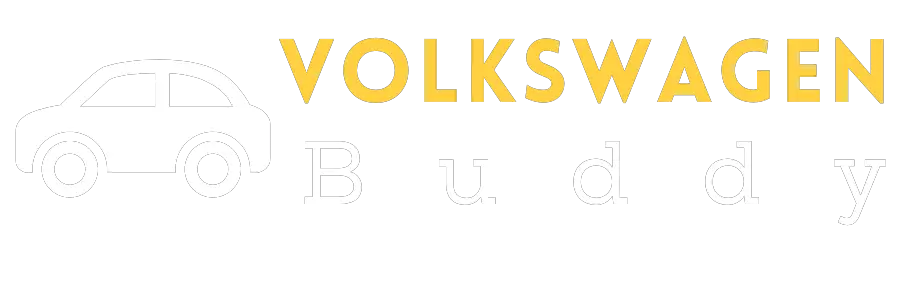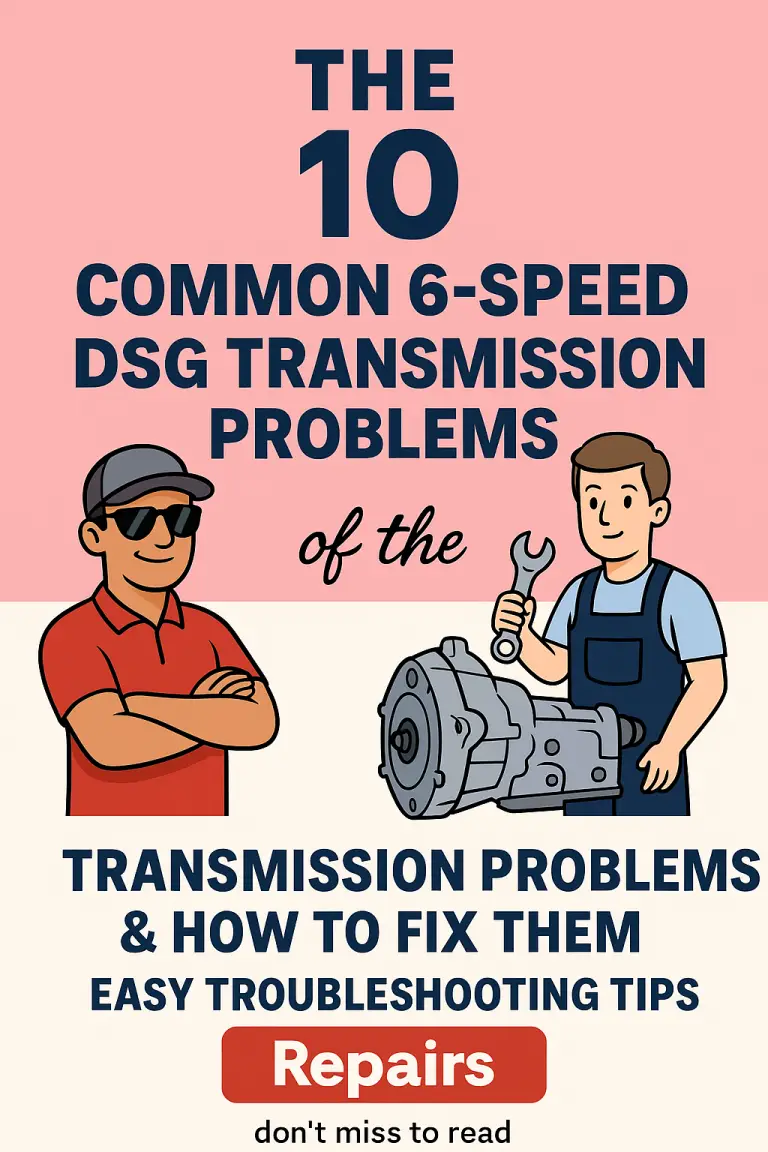Volkswagen DSG Transmission Problems – What You Need to Know (From One VW Fan to Another)

Let’s Talk DSG
If you’ve owned or driven a Volkswagen with a DSG transmission, you probably know the love–hate relationship that comes with it. I’ve been there myself—sliding behind the wheel, loving the snappy gear changes, and then… wondering why it suddenly feels like the car’s having a midlife crisis at 40,000 miles.
So, let’s cut to the chase—if you’re here, you’ve likely heard the whispers (or loud complaints) about DSG problems. I’m going to break it all down for you, in plain English, like we’re just two car nerds chatting in the garage.
What Is the DSG Transmission Anyway?
Before we dive into problems, let’s make sure we’re on the same page.
DSG stands for Direct-Shift Gearbox—a fancy name for a dual-clutch transmission that VW has been using for years in models like the Golf GTI, Passat, Jetta, and Audi cousins.
Why VW Enthusiasts Love It
- Lightning-fast gear shifts – It changes gears in milliseconds.
- Fuel efficiency – More MPG compared to a traditional automatic.
- Sporty feel – Gives you the fun of a manual without the clutch pedal.
Sounds perfect, right? Well… not quite.
Common Volkswagen DSG Transmission Problems
Here’s where reality sets in. The DSG is brilliant when it works—but when it doesn’t, it can be frustrating and expensive.
1. Juddering or Shuddering
Ever feel your car vibrating when you accelerate? That’s juddering—often caused by worn clutch packs or contamination in the mechatronic unit.
Possible causes:
- Clutch wear
- Low-quality transmission fluid
- Mechatronic unit malfunction
Quick tip: If you feel slight juddering when cold but it disappears when warm, it might be a fluid-related issue.
2. Delayed Gear Engagement
You shift into “Drive” or “Reverse” and… nothing. A few seconds later, it finally engages. This is usually a mechatronic control unit problem.
Why it happens:
- Failing mechatronic solenoids
- Low hydraulic pressure
- Electrical signal delays
3. Gear Hunting
This is when your DSG can’t decide which gear it wants—constantly shifting up and down, especially at low speeds.
Causes:
- Faulty software calibration
- Worn clutch packs
- Sensor issues (throttle, speed sensors)
4. Overheating Warnings
Some DSGs will flash an overheating warning, especially in heavy stop-and-go traffic.
Why it overheats:
- Poor cooling in hot climates
- Prolonged creeping in traffic
- Faulty temperature sensors
Pro tip: If you get an overheating warning, pull over, shift to neutral, and let it cool for a few minutes.
5. Limp Mode Activation
The dreaded “limp mode” limits power to protect the transmission when a fault is detected.
Common triggers:
- Faulty mechatronic unit
- Electrical issues
- Sensor failures
When limp mode hits, it feels like your VW just aged 20 years in one second.
The Mechatronic Unit – The DSG’s “Brain”
If the DSG is the heart of your VW, the mechatronic unit is the brain. It controls:
- Gear selection
- Clutch engagement
- Hydraulic pressure
When it fails, you can get all the symptoms above. And yes—it’s one of the most expensive parts to replace.
How to Diagnose DSG Problems Like a Pro
1. Listen and Feel
Pay attention to:
- Clunky gear changes
- Jerky starts from a standstill
- Vibrations at low speeds
2. Scan for Error Codes
Use an OBD-II scanner or, better yet, VCDS (VAG-COM Diagnostic System) to pull VW-specific fault codes.
3. Check Service History
If the transmission fluid hasn’t been changed at the recommended intervals, that’s a red flag.
Preventing DSG Problems (Yes, It’s Possible!)
Follow VW’s Fluid Change Schedule
- Every 40,000 miles for most DSG units.
- Use genuine VW DSG fluid—no cheap substitutes.
Avoid “Creeping” in Traffic
Riding the clutch in slow traffic heats things up. If you’re stopped for more than a few seconds, shift to Neutral.
Let It Warm Up
Like your morning coffee, DSGs work better once warmed up.
Repair and Maintenance Costs – What to Expect
| Repair | Estimated Cost (USD) |
|---|---|
| DSG Fluid Change | $250–$400 |
| Mechatronic Unit Replacement | $1,500–$2,500 |
| Clutch Pack Replacement | $1,000–$1,800 |
| Software Update / Reflash | $150–$300 |
FYI: Costs can vary wildly depending on location and whether you go to a VW dealer or an independent specialist.
Which VW Models Have DSG Issues?
While no DSG-equipped VW is immune, problems tend to appear more often in:
- 2008–2014 Golf & Jetta with DQ200 7-speed DSG
- Early Mk6 GTI models
- Some Passat and Tiguan models with DQ250 6-speed DSG
Later models improved reliability with updated mechatronics and better clutch materials—but maintenance is still key.
DSG vs. Traditional Automatic – Is It Worth It?
Pros of DSG
- Faster shifting
- Better fuel economy
- Sportier drive
Cons of DSG
- More complex and expensive to repair
- Sensitive to driving style and maintenance
- Not as smooth in stop-and-go traffic
If you’re buying a used VW with a DSG, factor in possible repair costs before you sign on the dotted line.
Real Talk – My Own DSG Story
I once owned a 2011 Golf GTI with the DQ250 DSG. For the first 60k miles, it was pure joy. Then, out of nowhere, I got the PRNDS flashing light (gear selector warning). Diagnosis? Mechatronic failure.
It cost me nearly $2,000 to replace—but after that, it ran like new. Would I buy another VW with a DSG? Honestly… yeah, but I’d budget for maintenance from day one.
Conclusion – Love It or Hate It, DSG Needs Respect
So, here’s the takeaway:
- DSG transmissions are amazing when maintained—ignore them, and they’ll bite back.
- Most problems stem from fluid neglect, mechatronic issues, or clutch wear.
- If you own one, stay ahead with service intervals and be gentle in traffic.
Owning a DSG VW is like dating someone with a strong personality—you’ll get incredible moments and some headaches. But if you understand it, respect it, and take care of it, it’ll return the love mile after mile.

![2006 Volkswagen Passat Esc Off [Step-By-Step Fixes]](https://volkswagenbuddy.com/wp-content/uploads/2024/05/2006-volkswagen-passat-esc-off-step-by-step-fixes_4514-768x531.jpg)
![2015 Volkswagen Jetta Ac Not Working [Proven Ways To Fix]](https://volkswagenbuddy.com/wp-content/uploads/2024/05/2015-volkswagen-jetta-ac-not-working-proven-ways-to-fix_3866-768x531.jpg)


![Volkswagen Jetta Cruise Control Not Working [Easy Fixes!]](https://volkswagenbuddy.com/wp-content/uploads/2024/05/volkswagen-jetta-cruise-control-not-working-easy-fixes_3877-768x531.jpg)
![2006 Volkswagen Jetta Flywheel Clatter When Shutting Off [Fix It For Good]](https://volkswagenbuddy.com/wp-content/uploads/2024/05/2006-volkswagen-jetta-flywheel-clatter-when-shutting-off-fix-it-for-good_4509-768x531.jpg)